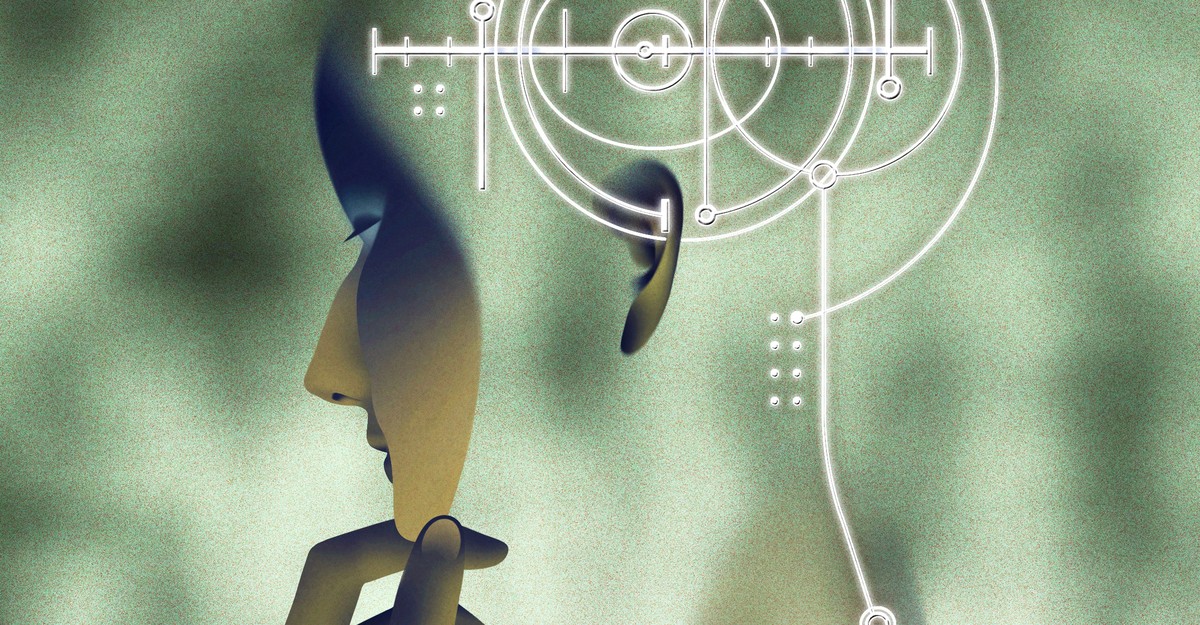- cross-posted to:
- [email protected]
- [email protected]
- cross-posted to:
- [email protected]
- [email protected]
If this is the way to superintelligence, it remains a bizarre one. “This is back to a million monkeys typing for a million years generating the works of Shakespeare,” Emily Bender told me. But OpenAI’s technology effectively crunches those years down to seconds. A company blog boasts that an o1 model scored better than most humans on a recent coding test that allowed participants to submit 50 possible solutions to each problem—but only when o1 was allowed 10,000 submissions instead. No human could come up with that many possibilities in a reasonable length of time, which is exactly the point. To OpenAI, unlimited time and resources are an advantage that its hardware-grounded models have over biology. Not even two weeks after the launch of the o1 preview, the start-up presented plans to build data centers that would each require the power generated by approximately five large nuclear reactors, enough for almost 3 million homes.



I wouldn’t put too much stock in notions of a great filter. The “Fermi paradox” is not a paradox, it’s speculation. It misses the mark on how unbelievably unlikely life is in the first place. It relies on us being impressed by big numbers and completely forgetting about probabilities as we humans tend to do what with our gambler’s fallacies and so on.
Even the Drake equation forgets about galactic habitable zones, or the suitability of the stars themselves to support life. Did you know that our star is unusually quiet compared to what we observe? We already know that’s a very rare quality of our situation that would allow the stable environment that life would need. Then there’s chemical composition, atmosphere, magnetosphere, do we have a big Jupiter out there sweeping up most of the cataclysmic meteors that would otherwise wipe us out?
All these probabilities stack up, and the idea that a life-supporting planet is more common than one in 400 billion stars is ludicrously optimistic, given how fast probabilities can stack up. You’re about as likely to win the Lotto, and it seems to me the conditions for life would be a little more complex than that, not to mention the probability that it actually does evolve.
I think it might be possible that life only happens once in a billion galaxies, or even less frequently. There might not be another living organism within our local galactic cluster’s event horizon. Then you have to ask about how frequent intelligent life, to the point of achieving interstellar travel, is.
You know why your favourite science youtuber brushed right past the rare earth hypothesis and started talking about the dark forest? Because one of those makes for fun science-adjacent speculation, and the other one doesn’t.
It also relies on the notion that resources are scarce, completely brushing over the fact that going interstellar to accumulate resources is absolutely balls to the wall bonkers. Do you know how much material there is in our asteroid belt? Even colonising the Moon or Mars is an obscenely difficult task, and Fermi thinks going to another star system, removed from any hope of support by light years, is something we would do because we needed more stuff? It’s absurd to think we’d ever even consider the idea.
But even then, Fermi said that once a civilisation achieves interstellar travel it would colonise a galaxy in about “a million years”. Once again relying on us being impressed by big numbers and forgetting the practicalities of the situation. Our galaxy is 100,000 light years across, so this motherfucker is telling us with a straight face that we’re going to colonise the galaxy, something we already know is unfathomably hard, at approximately ten percent of the speed of light? That is an average rate of expansion in all directions. Bitch, what?
If we did it at 0.0001c, that’s an average speed of 30km/s, including the establishment of new colonies that could themselves send out new colonies, because it’s no good to just zoom through the galaxy waving at the stars as they go past. That seems amazingly generous of a speed, assuming we can even find one planet in range we could colonise. Then we could colonise the galaxy in about a billion years.
Given the universe is 14 billion years old and the complex chemistry needed for life took many billions of years to appear, and life on our rock took many billions of years to evolve, then the idea that we haven’t met any of our neighbours - assuming they even exist - doesn’t seem like a paradox at all. It doesn’t seem like a thing that needs explanation unless you’re drumming up sensational content for clicks. I mean, no judgement, people gotta eat, but that’s a better explanation for why we care so much about this non-problem.
No, the Fermi paradox is pop-science. It’s about as scientific as multiversal FTL time travel. Intelligence is domain-specific, and Fermi was good at numbers, he wasn’t an exobiologist.
Thanks for the measured and thoughtful reaponse.
I don’t treat the Fermi Paradox or Great Filter as scientific fact and more like a philosophical representation of human nature applied to the universe at large.
I absolutely agree that life is very rare. I also agree that we have no frame of reference to the vastness of space. However, human nature, on the scale of the Earth, is trending towards self immolation due to systemic powers that can be treated as a constant.
I’m glad you appreciate it, it was as much an excuse for me to unload that rant as anything else :)
But we actually get into trouble when our models of reality are poor. Our nature isn’t self destructive at all, look at how many times we’ve been at the brink of nuclear annihilation and someone said, “actually don’t”, some of them in defiance of entrenched power structures that punished them for it.
We’ve had that world ending button for most of the last century, and we’ve never used it. If we really, on an instinctual level, were self-destructive we never would’ve evolved.
I think the real problem is the power structures that dominate us, and how we allow them to. They are aberrant, like tumours. They have an endless growth strategy, which just like in malignant tumours tend to kill the host. If they’re destroyed, the host can go on to live a complete life.
And things can change fast, these structures are tenacious but fragile. Look at the UHC assassination - claims immediately started getting approved. After decades of entrenched screwing over of people, they flipped on their back the moment they were threatened. How many other seemingly intractable problems could be cut out tomorrow if we applied the right kind of pressure?